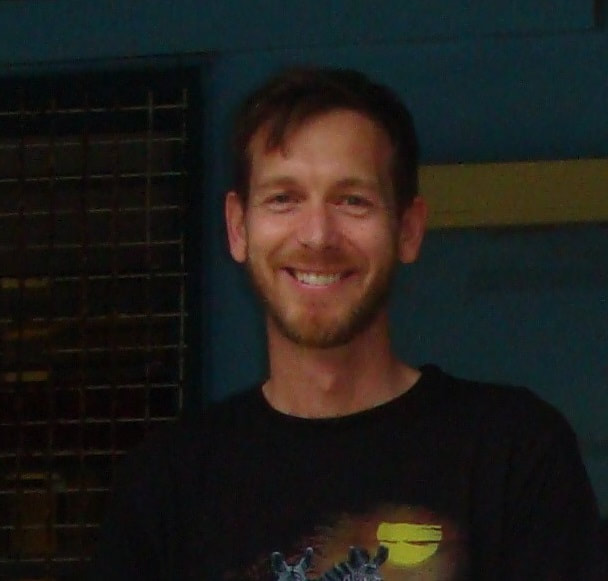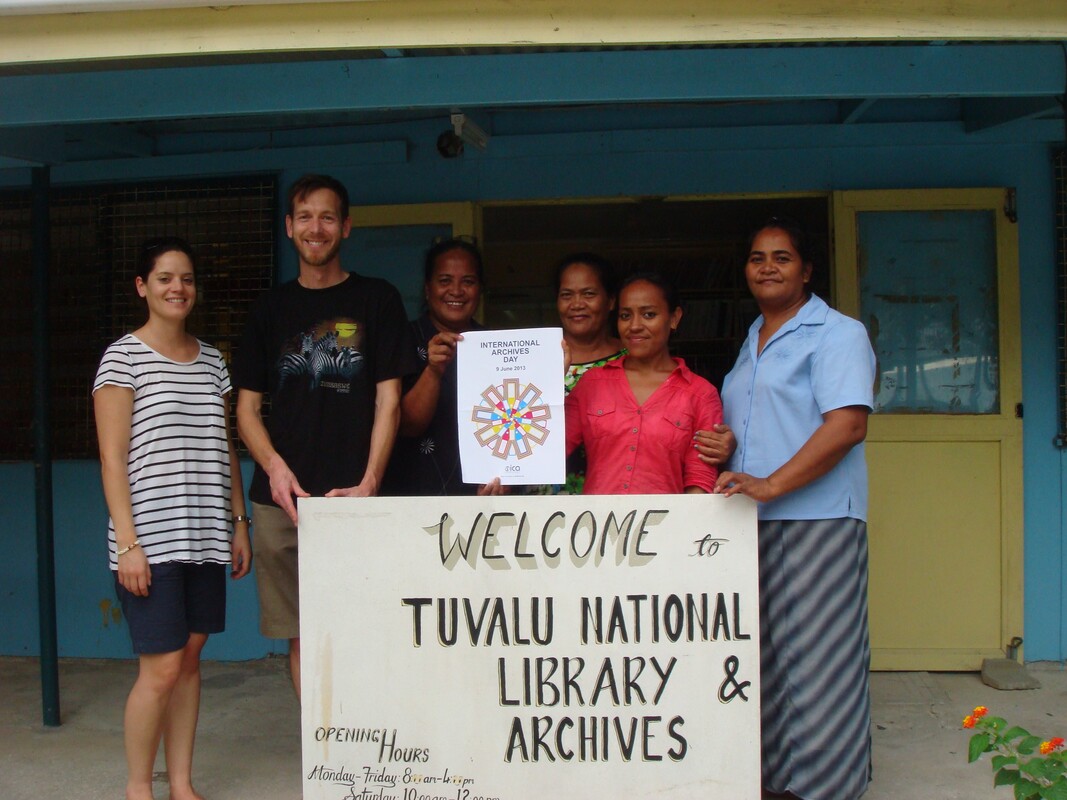Career Pathways with Mark Crookson, Programme Director, Documentary Heritage. National Library of New Zealand Te Puna Mātauranga o Aotearoa.
|
In this column, we interview library and information professionals – finding out how they got to where they are and any advice they have for students or new professionals.
Thank you Mark for taking the time to answer our Q&A about yourself and your career! We’re so pleased to have you join us for this edition of Library Life. Why don’t you start by telling us a little bit about yourself? Kia ora koutou katoa, I grew up in a various places across Te Waipounamu (Christchurch, Blenheim, Invercargill, Dunedin) but I call Dunedin home. I’m still lured there by cold still winter days, solitary walks on the Ōtepoti’s many beautiful beaches, and the sense of faded grandeur that is hard to find elsewhere in NZ. But I also find myself rolling my rrrrrrs when I hang out with my old Invercargill friends. Both were great places to grow up. |
I was a shy and sporty kid, playing football, cricket, basketball and tennis. Academically I was in the smart but could try harder basket a.k.a. lazy. In a 3rd year Women’s history paper at Otago University, Dr Barbara Brooks lectured me on how I was too lazy for post graduate study. I thought it was harsh at the time, but it was actually fair. Her words still rang in my ears eight years later as I went back to university for my MLIS 8 and learned what life was like and what could be achieved when I strived and how my values connected to the work of libraries. It was a watershed year for me.
So, what does a day look like in your role as Programme Director?
My role has two main focuses:
So, what does a day look like in your role as Programme Director?
My role has two main focuses:
- National Library lead on many of the design elements of the Tāhuhu Programme, which is building two new buildings and redesigning the National Library building to ensure the Library, Archives NZ and Ngā Taonga Sound and Vision have fit for purpose storage and technical facilities and will deliver co-located public access services to our collections. It’s pretty cool. https://archives.govt.nz/tahuhu
A usual day at the moment looks like:
|
Can you describe your library journey up until this point? Was this the career you always intended to go into, or was there another one?
I got into libraries via bookshops. I was interested in connecting people with books. After moving to Wellington in 2000 I got a role at Victoria University of Wellington (VUW) Library and found out how interesting it was connecting people with information. In 2002 I moved to the U.K. and worked as an ‘information assistant’ at the BBC Film Archive. I was working on a project that was digitising their entire film archive. It was great and where I learned about connecting people to unique information.
After coming back to NZ and completing my MLIS I worked for six years at Archives NZ as an appraisal archivist and on the Government Digital Archive Project where I really got into the power dynamics and politics of memory decision making. I traveled and volunteered for a while then came back to NZ to work at the Alexander Turnbull Library, first as Digital Collection Strategy Leader and then as Associate Chief Librarian. It was at ATL where I really honed my deep interest in the societal memory system, by that I mean all of the variables that enable remembering and forgetting through time, both through institutions like libraries, archives, museums, and through stories, oral histories, whakapapa.
Every main step of my career journey has enabled me to evolve my deep interest and drive for working in libraries and archives with documentary heritage.
We all had an idea of what a librarian is or does when we were younger, what was yours? Did you ever think you would become a librarian?
Not at all. I don’t think I’d given librarians or libraries a thought. I’m not sure I gave any profession or vocation a thought but if there was something that provided some focus it was being a footballer. More specifically I wanted to be Bryan Robson of late ‘80s Manchester United, but without having to do all the training. Maybe more of a fantasy than an idea.
Any career highlights you’d like to share with us?
I’ve been fortunate to work in a number of great projects that have connected me to excellent people from around the world. When I was Secretary General of PARBICA (The Pacific Branch of the International Council on Archives), we co-designed with Pacific colleagues a toolkit for improving recordkeeping and collections management across the Pacific. The process was great and enabled me to spend a lot of time in a variety of Pacific countries. It was picked up internationally and I ended up giving workshops in some great places around the world including Mozambique, Zimbabwe, Ghana, and Sweden. It was through this project that I realized I had leadership skills.
A current project that I’m enjoying enormously is Digital Pasifik https://digitalpasifik.org/ . It is a co-designed site that brings together digital cultural heritage from around the region relating to Pacific cultures – think DigitalNZ but just for Pacific content. It is a key part of the Pacific Virtual Museum pilot project for which I’m a co-project executive alongside my colleague Fiona Fieldsend). It is funded by the Department of Foreign Affairs and Trade in Australia and implemented by a small team at the National Library of New Zealand. The project is still running and we’re currently focused on how best to establish it as a sustainable service not owned by any one government. Check it out.
Do you have any advice for those who are currently finishing their LIS qualification/ degree?
What helped me was choosing a research essay topic that really interested me (Use of digital heritage resources in tertiary education). This interest helped get me through the final difficult stages and helped me realise I enjoyed deep learning.
Who would you say is one of the most influential librarians or sector people to you or your career?
Opeta Alefaio, the former National Archivist and Librarian of Fiji. Opeta is a great reader of people and showed me how much could be achieved just through running a workshop or meeting well and bringing people together.
If you could recommend only one book to someone, what would it be? (You can pick one for a child/ teen reader and one for an adult reader if that makes it easier)
Reading Kurt Vonnegut as a young man taught me how it’s possible to use humour and science fiction to address serious historical and social issues from a human centric perspective. So anything by him – Slaughterhouse-Five is a good start. So it goes.
In your opinion, why are libraries/ information organizations, archives, museums, galleries important to a country?
What drives me is a firm belief that preservation and access to our documentary heritage delivers social cohesion benefits through enabling societal memory, supporting people’s rights and entitlements, and promoting understanding of diverse views.


